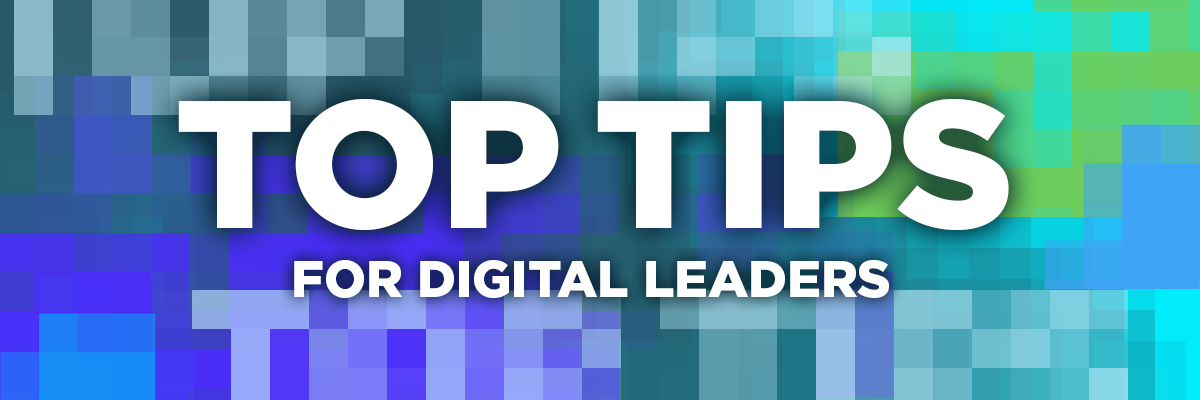9 Tips for Being a Education Leader in the Digital Age
- CPD
- Teaching And Learning
- Technology

9 Tips for Being a Education Leader in the Digital Age
Being an education leader has always been hard. But in the digital age, the stakes have been increased. So how can digital leaders best meet this gargantuan challenge? Here are my tips for being the best education leader that you can be in this digital age.
1. Create an environment of equity. Future leaders will have to find ways to assure that every student will have a positive learning environment. Edtech tools can provide the digital equity that all students need, regardless of race, gender, religion or socioeconomic background.
2. Keep your tech infrastructure up to par. Schools of the future must have a robust infrastructure that can support edtech solutions in a variety of creative ways, from wireless classrooms to BYOD policies. As more schools and districts transition to cloud based learning management systems, the education leaders of the future will be more comfortable with technology than ever before.
3. Be a champion for personalized learning. Future ready education leaders will find ways to provide personalized learning experience for students at every age. These leaders will do the same for all stakeholders in education, providing customized training opportunities. They’ll also do the same thing for themselves.
4. Build a collaborative environment. In the past, being an educational leader meant being in power. It was a top down approach where those not in a leadership position did what they were told. Future leaders can expect to find support in grassroots movements where everyone is empowered to contribute and collaborate inside and outside the classroom.
5. Recognize concerns. Change doesn’t come easy for everyone, especially in the digital technology space. Educators stress in their ability to fully implement technology in the classroom and their workspace – even after decades of classroom technology. Nine out of ten teachers will agree with you that edtech is here to stay, and yet only 40% of teachers report being prepared to implement it competently and confidently. Worries about digital footprints, security and privacy, or something else, can slow adoption unless you talk through them.
6. Walk the talk. Get your human resources department to help you set the expectation for digital leadership. Write job descriptions that require the use of current technology in every department. Next, provide professional development to make sure that employees have the digital skills you need, and then evaluate every employee on how well they have met the digital expectations of their job descriptions.
7. Celebrate the Early Adopters. Teachers and administrators who are fearless in embracing new trends often lead their peers. Identify these credible trendsetters right away, celebrate their success, and place them in a position of digital leadership. According to John Hattie, of Visible Learning, teacher credibility has an effect size of .90, and peer tutoring an effect size of .55. Early adopters can lead their peers in the right direction; these leaders often make excellent technology coaches.
8. Allow time for transition. Learning new ways to incorporate digital technology in your district takes time. Just as students learn at varying rates, your district employees will learn at different rates as well. Teachers, for example, need opportunities to thoughtfully engage with the types of technology used for communication and collaboration.
9. Create a culture based on change. Adding digital technology to an already full plate for district employees doesn’t create change; it foments resentment because it comes across as one more thing to do. Instead, encourage a real metamorphosis of your culture. Changing the culture of your organization allows to change the way everyone works together. Technology allows educators to create a synergy that doesn’t exist within the isolated classroom.
Did I miss anything?
Matthew Lynch is the editor of The Edvocate, The Tech Edvocate, and Edupedia.
)

